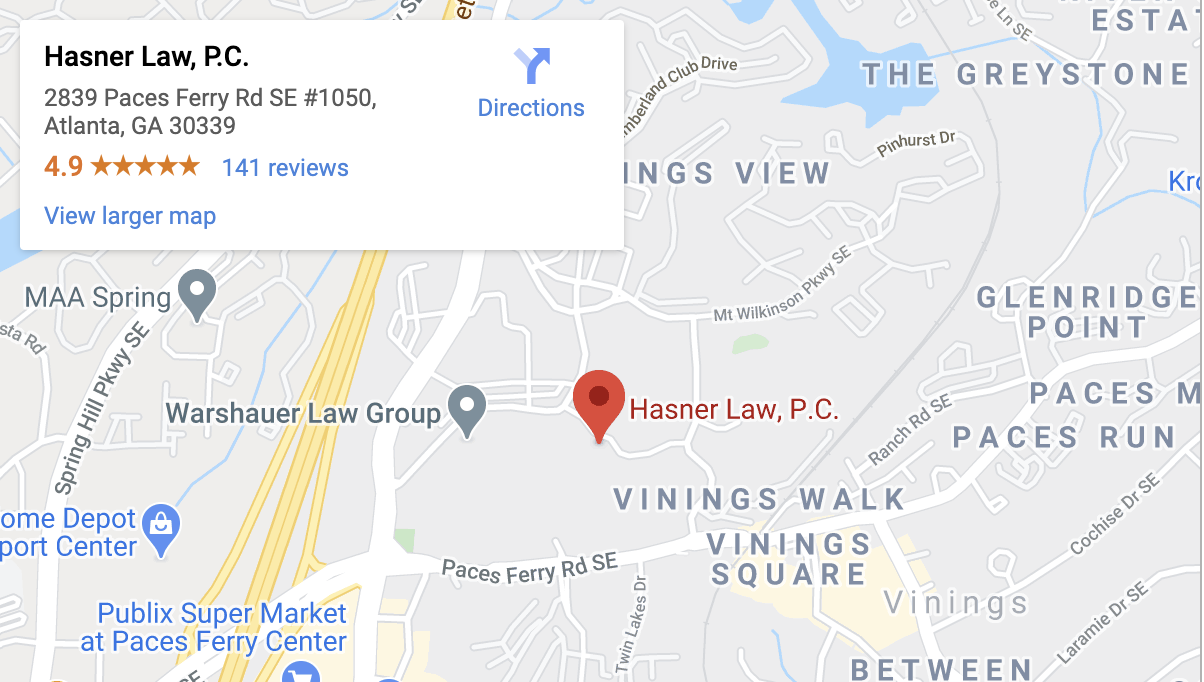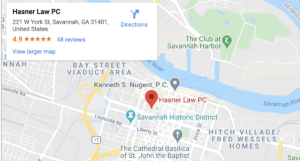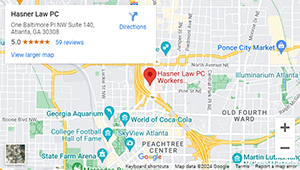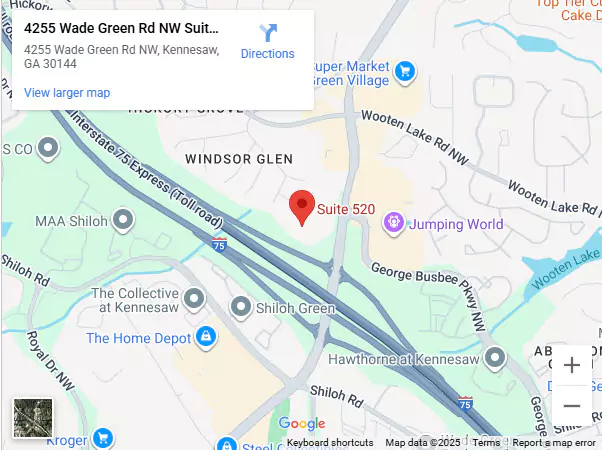What is Negligence?

The term “negligence” is common in our everyday vocabulary. We often accuse people of being negligent when they act carelessly. The legal definition of negligence is a bit more complex.
Negligence occurs when someone causes an accident or injury due to their failure to exercise reasonable care. Most personal injury cases are based on this legal theory.
If you were injured due to another’s carelessness, you may be entitled to compensation for your medical bills, lost wages, and pain and suffering. Your Atlanta personal injury lawyer will have to prove that the at-fault party was negligent.
Here’s what that looks like.
The Four Elements of Negligence
Proving negligence requires more than showing that someone was careless.
A plaintiff in a personal injury case must establish four separate elements to succeed in their case:
- The defendant owed the plaintiff a duty of reasonable care
- The defendant breached that duty
- The breach caused the plaintiff harm
- The plaintiff suffered damages
As we go through these elements, let’s use an example to help illustrate the concepts. Suppose you suffered whiplash in a car accident after another driver ran a red light and hit you. You will have to prove duty, breach, causation, and damages, in turn.
What is a Duty of Reasonable Care?
The first element of a negligence claim is “duty.” A plaintiff must show that the defendant owed them a duty of care.
A duty, in legal terms, is a legal obligation arising out of law or custom. Oftentimes, a duty flows from the relationship between the plaintiff and the defendant, such as those involving business and customer, doctor and patient, landlord and tenant, etc.
In negligence, duty most often means that another party had a legal responsibility to act in a reasonably safe manner and avoid injuring another person. For example, all drivers have a duty to obey traffic laws and drive safely.
Sticking with our example, you will have to prove that the driver who ran through a red light owed you a duty of care. You would do this by citing the general duty every driver has to others to comply with traffic laws and drive responsibly.
What Does it Mean for Someone to Breach Their Duty?
The next element of negligence is “breach.” This element requires proving that the defendant’s conduct fell below the duty of care they owed you. In other words, you have to show they acted unreasonably under the circumstances.
A plaintiff typically does this by comparing the defendant’s conduct to that of a hypothetical reasonable person.
In our example, you would establish breach by showing that the driver violated his duty of care to obey traffic laws by running the red light. A reasonable person obeys traffic signals to avoid car crashes.
How Do I Prove Someone Caused My Injuries?
The third element is called “causation.” Proving someone caused your injuries sounds simple enough, and most of the time, it is. Still, causation can be one of the most complicated elements in a personal injury claim.
In Georgia, causation comes in two flavors:
- Cause in fact
- Proximate Cause
You have to prove both types of causation to recover compensation for your injuries. Cause in fact is the simpler concept. You have to show that the defendant’s conduct actually caused your injuries. A plaintiff satisfies this requirement by using the so-called but for test. You must demonstrate that your injuries would not have occurred but for the defendant’s act or omission.
Using our example, you’d argue that you would not have suffered crash injuries but for the defendant running the red light. And you’d win that argument.
Proximate cause is a bit trickier. Courts and juries determine proximate cause through the concept of foreseeability. A defendant is only responsible for their conduct when it causes foreseeable injuries to foreseeable plaintiffs.
In many cases, this will be relatively simple. Take our example: you will easily prove the defendant’s running a red light was the proximate cause of your injuries.
It was foreseeable that the defendant’s running a red light would result in a crash. Whiplash was a foreseeable injury and you, another driver, were a foreseeable victim of the defendant’s carelessness.
How Do I Prove Damages?
The final element of negligence is “damages.” You must prove that you suffered financial or emotional losses due to the defendant’s conduct. And generally, you must prove how extensive your losses were to recover compensation for your damages.
You would satisfy this last element by showing proof of:
- Medical Expenses related to your injuries, including anticipated future medical care
- Lost income due to missed work
- Property Damage
- Emotional distress and PTSD after the accident
- Disfigurement or scarring
- Loss of enjoyment of life
- Loss of consortium
Sometimes, damages require expert testimony, especially for issues like future medical care and lost earning capacity. If you did not suffer damages, you will typically be unable to win your personal injury case.
In our example, you would show you suffered damages by providing proof of your medical expenses after your car accident, including ambulance and emergency room costs, rehabilitation and physical therapy, and medical supplies. You would also provide pay stubs or employer testimony showing the extent of your lost wages due to the whiplash.
Hire an Atlanta Personal Injury Attorney to Help Prove Your Negligence Claim
Proving negligence is a complex legal process. You don’t want to leave it to chance. If you were injured due to someone’s carelessness, you should contact an Atlanta personal injury attorney for help.
The attorneys at Hasner Law Injury & Workers’ Compensation Attorneys have decades of experience holding negligent parties accountable for our client’s injuries. Call our office today to schedule a free consultation to discuss your case.







